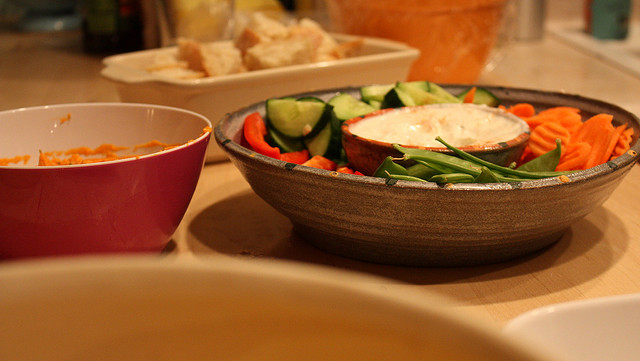When it comes to nutrition, if our diet isn’t sustainable then it’s pretty much worthless.
If you enjoy losing weight, then regaining weight only to lose and then regain again, then by all means stick with the newest trendy diet.
This weight “yo-yoing” happens constantly with all the new fad diets and trends coming out every year. It occurs because we stick to the new trendy diet for two to three months (if that) and lose some weight, but eventually we slip and keep slipping until we abandon the diet.
This leads to regaining all the weight we lost and usually more! Who wants to live like that?
When our diets are sustainable, we can follow them indefinitely because we are still enjoying the things we love, it isn’t necessarily hard to follow and it is ever changing to help us achieve our goals.
One important note about maintaining a sustainable nutrition regime is that if we maintain our weight loss for at least two years, our chances of long term weight management greatly improve. I know two years is a long time, but think about the physiological damage (metabolic) we can do to ourselves in that time span by switching between overeating and caloric restrictive diets.
It’s a way better strategy to start with a sustainable diet and stick to it. What does this sustainable nutrition program encompass? (Note: the words “nutrition program” and “diet” are used interchangeably.)
Main Components.
A sustainable diet needs to be a diet where we aren’t constantly hungry, which can lead to binge eating. It should include eating so many high quality foods that we will never be hungry for junk food and empty calories. Unless we are trying to achieve a single digit body fat percentage or are physique competitors, we should never be hungry.
Doing this is possible!
Quality foods include nutrient loaded proteins, fruits and vegetables. No one has ever gotten fat from eating veggies (unless they did something weird like deep fried them all and drenched them in Ranch dressing)!
One interesting approach to creating an ideal diet comes from Jonathan Bailor (author of the Calorie Myth) who in an Always Active Athletics interview in regards to a healthy diet said, “The order of volume [that you should consume in your diet]: non-starchy vegetables, then nutrient dense proteins, then whole food fats and low fructose fruits; eat as much of those as you want in that order whenever you want.”
Have your diet revolve around this mantra and you can bet your diet will be sustainable. Even if we are into counting calories or macros our diets can still revolve around these basic groups.
Eat What You Love.
Our sustainable diets should also include the things we love. If we aren’t including our favorites like ice cream or cookies, we may eventually cave and eat an entire carton or box of cookies. We need to include these foods in our sustainable nutrition program in moderation in order to help teach ourselves how to eat healthier.
Instead of cutting things from your diet, you should eat them occasionally in moderation. This isn’t straight up B.S. either; there is some science behind this. A 2014 study out of Vanderbilt University found that you can teach yourself how to eat healthier by including these “crap or junk” foods in your diet but decreasing their portions while increasing the portion size of more healthy foods (e.g. the fruits and veggies mentioned above). You get the satisfaction of eating what you love while becoming a healthier you, how great is that?
Eat That Breakfast.
Another aspect of a sustainable diet starts in the morning: breakfast. It has been found that those that maintain successful long-term weight loss were more apt to eat breakfast. One of the most common denominators of people that lose weight and maintain that weight loss forever is eating a hearty, healthy breakfast which helps to decrease your hunger throughout the morning!
One way to make breakfast part of your sustainable diet is making it convenient. For instance, making breakfast early in the morning when you are barely awake can be a hassle, instead have convenient breakfast foods at hand like hard-boiled eggs and fruit salads that make for a quick and healthy breakfast.
Wrap-Up.
A sustainable diet isn’t incredibly complex and cumbersome nor does it require a PhD to figure out.
Basically, don’t eat a bunch of crap food; instead start eating a lot of veggies and fruits and high quality protein. That isn’t that confusing is it? Of course, this is really put in the most simplistic way possible but that is because these should be the easy foundational building blocks for your entire diet!
Develop a sustainable diet that is right for you; there is no one-size fits all diet.
We are all too unique when it comes to our schedules and physiology that everyone should have their own unique sustainable diet. If you can find the Holy Grail of nutrition and make your diet sustainable and therefore easy to adhere to, you can enjoy the benefits of weight maintenance indefinitely!
Love elephant and want to go steady?
Sign up for our (curated) daily and weekly newsletters!
Editor: Catherine Monkman
Photo: timlewlsnm/Flickr












Read 0 comments and reply